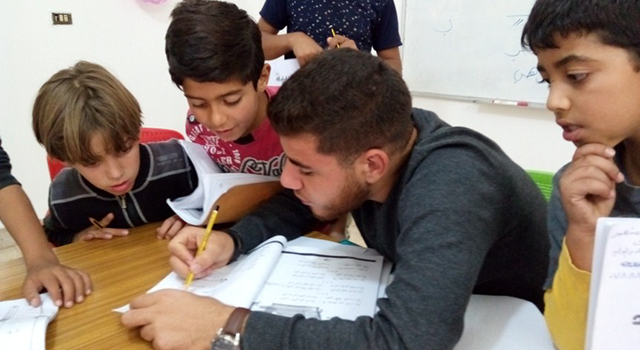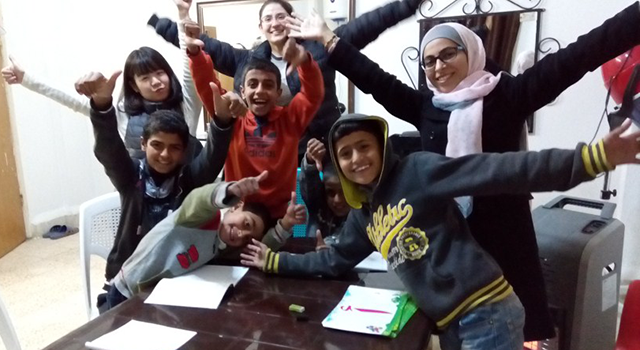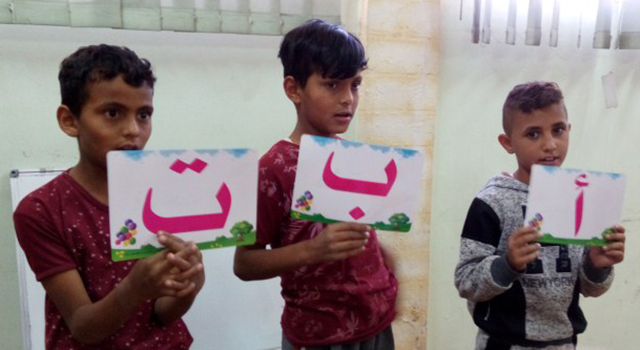Jordan: Arabic Classes for Illiterate Children
WFWP Jordan has been working for many decades to support and empower women with skills training, distributing microcredits to start a small business, and several courses on health, safety and academics. For about nine years, WFWP Jordan has also been supporting Iraqi refugees by helping them with paperwork and other needs.
Recently, WFWP Jordan has shifted its focus to youth and children. There are a great number of illiterate children in Jordan, as they are not encouraged in their studies. The poverty of their families, classroom overcrowding, and the fact that teachers work two jobs, meaning they cannot spend enough time with students who need extra care, are just few of the reasons for the average of 5 to 10 children repeating a class out of 40 to 60 pupils.
WFWP Jordan decided to take action to protect these disadvantaged youth by offering after-school literary classes. These classes are for children aged 8 to 13 years of age. The aim is to help these children at the age before they leave school. If these children remain illiterate, they will have more difficulty finding good jobs in the future and are at greater risk of ending up roaming the streets, where they can more easily fall prey to bad influences, harmful habits, drug dealers, etc. WFWP Jordan's literacy classes are mostly attended by boys, as they are the most vulnerable. However, there are some females students who have also benefited.
WFWP Jordan hold these after-school classes in two locations for Arabic literacy, numeracy, and English. They also offer moral and emotional support through play, sports and social work. During their play dates at the park, the children participate in a visualization exercise where they pretend to be one of several types of professionals (doctor, engineer, etc.) and pretend play that they are in that role.
These classes are run by a dedicated team of young but disadvantaged university students. They have volunteered their time, in spite of financial and academic responsibilities, with the awareness that they are helping the future generation of their country.
Jordan has strict rules for foreign NGOs. They are not allowed to receive funding from within the country, nor to have any activity that will bring them income. Non-Jordanian NGOs depend solely on donations from abroad.



